Linguistic anthropology is the interdisciplinary study of how language influences social life. It is a branch of anthropology that originated from the endeavor to document endangered languages and has grown over the past century to encompass most aspects of language structure and use.

Estelle Sylvia Pankhurst was an English feminist and socialist activist and writer. Following encounters with women-led labour activism in the United States, she worked to organise working-class women in London's East End. This, together with her refusal in 1914 to enter into a wartime political truce with the government, caused her to break with the suffragette leadership of her mother and sister, Emmeline and Christabel Pankhurst. Pankhurst welcomed the Russian Revolution and consulted in Moscow with Lenin. But as advocate of workers' control, she rejected the Leninist party line and criticised the Bolshevik dictatorship.

The Gumuz are an ethnic group speaking a Nilo-Saharan language inhabiting the Benishangul-Gumuz Region in western Ethiopia, as well as the Fazogli region in Sudan. They speak the Gumuz language, which belongs to the Nilo-Saharan family. The Gumuz number around 250,000 individuals.
Caste systems in Africa are a form of social stratification found in numerous ethnic groups, found in over fifteen countries, particularly in the Sahel, West Africa, and North Africa. These caste systems feature endogamy, hierarchical status, inherited occupation, membership by birth, pollution concepts and restraints on commensality.
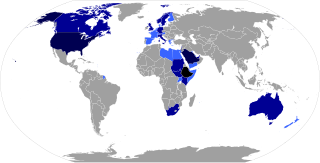
Ethiopians are the native inhabitants of Ethiopia, as well as the global diaspora of Ethiopia. Ethiopians constitute several component ethnic groups, many of which are closely related to ethnic groups in neighboring Eritrea and other parts of the Horn of Africa.
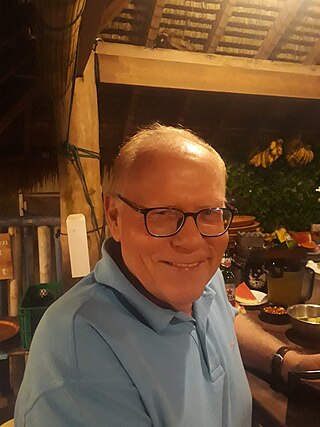
Gilbert H. Herdt is Emeritus Professor of Human Sexuality Studies and Anthropology and a Founder of the Department of Sexuality Studies and National Sexuality Resource Center at San Francisco State University. He founded the Summer Institute on Sexuality and Society at the University of Amsterdam (1996). He founded the PhD Program in Human Sexuality at the California Institute for Integral Studies, San Francisco (2013). He conducted long term field work among the Sambia people of Papua New Guinea, and has written widely on the nature and variation in human sexual expression in Papua New Guinea, Melanesia, and across culture.

The Ethiopian Empire, also formerly known by the exonym Abyssinia, or simply known as Ethiopia, was a sovereign state that historically encompasses the geographical area of present-day Ethiopia and Eritrea from the establishment of the Solomonic dynasty by Yekuno Amlak approximately in 1270 until the 1974 coup d'etat by the Derg, which dethroned Emperor Haile Selassie. By 1896, the empire incorporated other regions such as Hararghe, Gurage and Wolayita, and saw its largest expansion with the federation of Eritrea in 1952. Throughout much of its existence, it was surrounded by hostile forces in the African Horn; however, it managed to develop and preserve a kingdom based on its ancient form of Christianity.
Nancy Scheper-Hughes is an anthropologist, educator, and author. She is the Chancellor's Professor Emerita of Anthropology and the director and co-founder of the PhD program in Critical Medical Anthropology at the University of California, Berkeley. She is known for her writing on the anthropology of the body, hunger, illness, medicine, motherhood, psychiatry, psychosis, social suffering, violence and genocide, death squads, and human trafficking.
Ethiopian studies or Ethiopian and Eritrean studies refers to a multidisciplinary academic cluster dedicated to research on Ethiopia and Eritrea within the cultural and historical context of the Horn of Africa.
The Ethiopian language area is a hypothesized linguistic area that was first proposed by Charles A. Ferguson, who posited a number of phonological and morphosyntactic features that were found widely across Ethiopia and Eritrea, including the Ethio-Semitic, Cushitic and Omotic languages but not the Nilo-Saharan languages.
Douglas Hamilton Johnson is an American scholar who lives in Britain who specializes in the history of North East Africa, Sudan and the Southern Sudan.

Richard Keir Pethick Pankhurst OBE was a British scholar, founding member of the Institute of Ethiopian Studies, and former professor at the University of Addis Ababa in Ethiopia. His books have been reviewed in scholarly journals, with Edward Ullendorff calling his The Ethiopians as another testimony to his "remarkable diligence and industry in the service of Ethiopian studies". He is known for his research on economic history and socio-cultural studies on Ethiopia.
The Dawro are a people of southern Ethiopia, also known as the Omete. They speak the Dawragna language.
The Weyto are a caste living in the Amhara region along the shore of Lake Tana in northern Ethiopia. They worship the Nile River. They currently live in Bahir Dar, Abirgha, Dembiya and Alefa. The Weyto also made up part of the population of the Blue Nile Falls and Fogera, where currently their presence has not been ascertained.

The Kwegu are an ethnic group that lives on the western banks of the Omo River in the newly formed South Ethiopia Region. Some members of the Kwegu also live on the eastern banks of the river among the Mursi. Previously they were hunter-gatherers, but today they are engaged in a mixed economy of hunting, farming, beekeeping, and fishing.
Cultural studies is a politically engaged postdisciplinary academic field that explores the dynamics of especially contemporary culture and its social and historical foundations. Cultural studies researchers generally investigate how cultural practices relate to wider systems of power associated with, or operating through, social phenomena. These include ideology, class structures, national formations, ethnicity, sexual orientation, gender, and generation. Employing cultural analysis, cultural studies views cultures not as fixed, bounded, stable, and discrete entities, but rather as constantly interacting and changing sets of practices and processes. The field of cultural studies encompasses a range of theoretical and methodological perspectives and practices. Although distinct from the discipline of cultural anthropology and the interdisciplinary field of ethnic studies, cultural studies draws upon and has contributed to each of these fields.
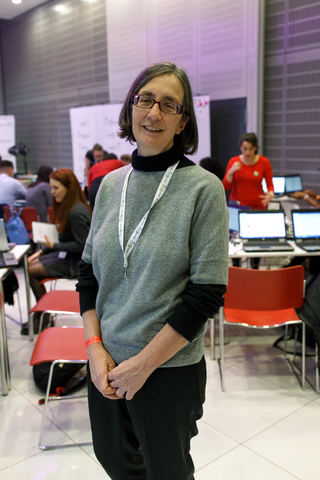
Helen Pankhurst is a British women's rights activist, scholar and writer. She is currently CARE International's senior advisor working in the UK and Ethiopia. She is the great-granddaughter of Emmeline Pankhurst and granddaughter of Sylvia Pankhurst, who were both leaders in the suffragette movement. In 2018 Pankhurst convened the Centenary Action Group, a cross-party coalition of over 100 activists, politicians and women's rights organisations campaigning to end barriers to women's political participation.
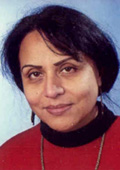
Aparna Rao was a German anthropologist who performed studies on social groups in Afghanistan, France, and some regions of India. Her doctorate studies focused on anthropogeography, ethnology, and Islamic studies. Rao taught anthropology at the University of Cologne, serving for a brief time as chair of the Department of Ethnology at the South Asia Institute of Heidelberg University, Germany.
A neftenya was the name given to Emperor Menelik II's warriors, who were primarily of Shewan Amhara origin, that collected customs and taxes for the Imperial Ethiopian government. In its literal meaning, neftenya, referred to riflemen in the Imperial Ethiopian Army who were known to have settled in Ethiopia's peripheral regions, including parts of present-day Oromia Region, the SNNPR Region, Gambela Region and the Benishangul-Gumuz Region from the late 19th century onwards. The origin of this term lies from the fact that these soldiers, i.e. "neftenya", were granted land on these newly conquered territories, including the services of the indigenous people on these lands, as rewards for their services.
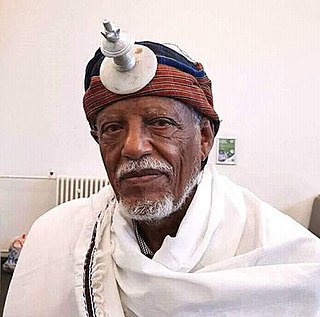
Customary laws, in line with official state laws, are based on age-old community customs and norms in Ethiopia. They are noticeable in regional states and become influential in the life of people more than the formal legal system. For example, in Amhara Region, they are called "Shemagelle", in Tigray "Bayito" and "Abo Gereb", and "Luba Basa" in Oromia.









